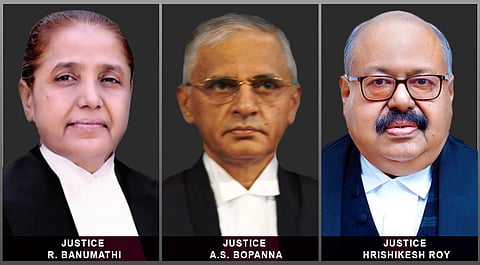
- News
- Columns
- Interviews
- Law Firms
- Apprentice Lawyer
- Legal Jobs
- हिंदी
- ಕನ್ನಡ

The Supreme Court on Thursday reiterated that the statutory right of appeal will not be extinguished only on account of a dismissal of an application to set aside an ex parte decree under Order IX, Rule 13 of the Code of Civil Procedure (CPC).